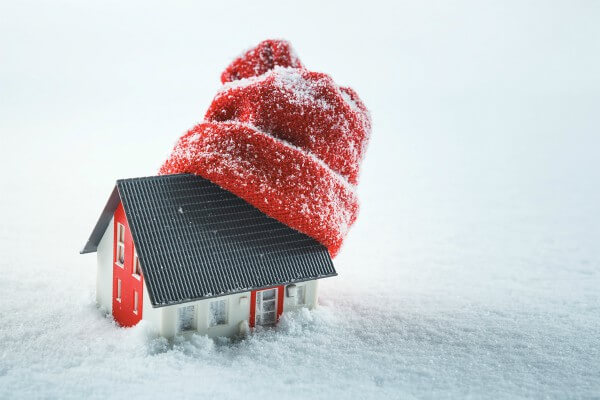Winter-proof Your Home

We all love to feel cosy during the winter, but when the temperature drops, our homes are at risk. We spoke to experts at NFU Mutual to find out how to get ready for winter.
Our thanks to NFU Hemel Hempstead for sponsoring this article in our Winter issue. You can find out more about them and the services they provide here.
Stop water pipes freezing
If water pipes freeze they can burst when the water starts to melt.
Keep your heating on every day, even if you’re away, to stop the pipes from freezing in the first place.
‘For longer periods, you should turn the water off and drain the plumbing systems,’ explains Tony Fields from NFU Mutual Insurance in Hemel Hempstead.
‘Also leave your loft door open to allow heat to circulate around your tank and pipes.’
Reduce the damage of burst pipes
If pipes do freeze, turn off the water supply, and turn on cold taps to drain the system,’ says Tony.
‘Be careful of electrics, and turn off the electricity supply at the fusebox.
‘Turn off any immersion heater and central heating system and turn on all hot water taps to drain any excess water.
‘Check ceilings for bulging caused by water pooling above. If it is safe to do so, make a small hole to allow the water to escape slowly into a container.
‘Always consult a plumber and electrician before the water and electricity are turned back on.’
Check your boiler
‘Regular boiler check-ups are essential, as they can prevent breakdowns during cold spells,’ says Tony. ‘It’s also worth asking your service engineer about the benefits of adding antifreeze to your system.’
Prevent snow damage
A decent layer of snow on a conservatory roof is the equivalent of around 10 adults sitting on it – that’s a lot of extra weight for it to hold!
‘Damage is most often caused where a large amount of snow collects after falling over a number of days,’ says Tony. ‘The weight has the potential to cause roofs on conservatories, outbuildings or even houses to collapse.’
Keep gutters and drainpipes clear so that melting snow can drain away.
Try to prevent damage by warming the building in order to melt the snow from the roof — open a loft hatch or heat a conservatory. Just make sure nobody stands underneath an area where snow could fall off.
Other simple ways to protect your home
Get your chimney swept
HETAS, the solid fuel safety and standards organisation, recommends that you have your chimney swept twice a year, but at least once a year is essential. Creosote and soot build up in the chimney and prevent dangerous gases from escaping. A build-up can also cause dangerous chimney fires.
Check carbon monoxide monitors
If you have at least one fuel-burning appliance or heater then it’s essential to have a carbon monoxide (CO) monitor installed. CO is a deadly gas, which is otherwise impossible to detect. If you have one, make sure it’s working properly and check smoke alarms too.
Check the roof
Check your roof for broken or missing tiles and slates, and get them replaced to prevent water getting in. Keep gutters and drainpipes clear of debris to help rainwater drain away.
Clear the garden
Check fences to make sure they’re robust enough to withstand gales, and fix broken gates so they don’t spend the winter months banging around.

